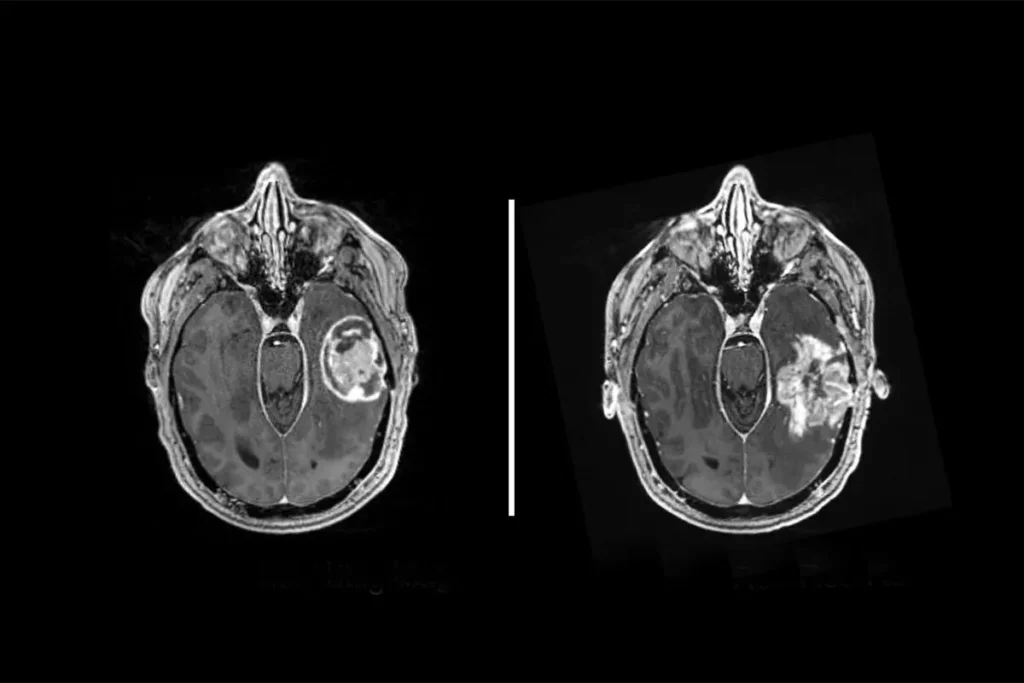
Overview
Glioblastoma (also known as glioblastoma multiforme or GBM) is the most aggressive type of primary brain tumor. It originates from astrocytes — star-shaped cells that support nerve cells — in the brain or spinal cord. GBM accounts for about 15% of all brain tumors and is known for its rapid growth and resistance to treatment.
Symptoms
- Persistent or severe headaches
- Nausea or vomiting
- Seizures
- Difficulty with balance or coordination
- Personality or behavioral changes
- Memory loss
- Visual disturbances
Causes & Risk Factors
- Genetic mutations (e.g., IDH1/IDH2, EGFR)
- Previous radiation exposure to the head
- Age (most common in adults aged 45–70)
- Gender (slightly more common in males)
- No strong hereditary pattern in most cases
Diagnosis
- MRI with contrast (gold standard)
- CT scan (less specific)
- Biopsy for histological confirmation
- Molecular testing for MGMT methylation, IDH mutation, and EGFR amplification
Treatment Options
- Surgical resection (maximal safe removal)
- Radiation therapy (usually with concurrent chemotherapy)
- Chemotherapy (typically temozolomide)
- Tumor Treating Fields (TTF) – electrical field therapy
- Clinical trials (targeted therapy, immunotherapy)
Prognosis
- Median survival: 12–15 months with standard treatment
- 2-year survival rate: ~25%
- Prognosis depends on age, performance status, and molecular markers (e.g., MGMT methylation improves response to chemotherapy)
Living with this Cancer Type
- Physical and occupational therapy
- Psychological support and counseling
- Cognitive rehabilitation
- Support for caregivers
- Advance care planning
Prevention & Screening
- No known preventive screening methods
- Avoid unnecessary radiation exposure
- Research ongoing in genetic and environmental links
FAQs
- Can glioblastoma be cured?
- What are the latest research developments?
- Is glioblastoma inherited?
- What support is available for families?
Resources
- American Brain Tumor Association (abta.org)
- National Brain Tumor Society
- Brain Tumour Foundation (UK/Canada)
- ClinicalTrials.gov (search for “glioblastoma”)
Understand Precision Testing
Learn how liquid biopsy and chemo sensitivity testing can personalize your treatment plan.
Make Informed Decisions
Gain knowledge to actively participate in treatment discussions with your healthcare team.
Improve Treatment Outcomes
Discover how precision medicine and metabolic therapies can enhance treatment effectiveness.
Start Your Educational Journey Today
Empower yourself with knowledge about precision metabolic oncology and take an active role in your cancer care journey.
Need More Information?
Our team of oncology experts is here to help you understand your diagnosis and treatment options.
